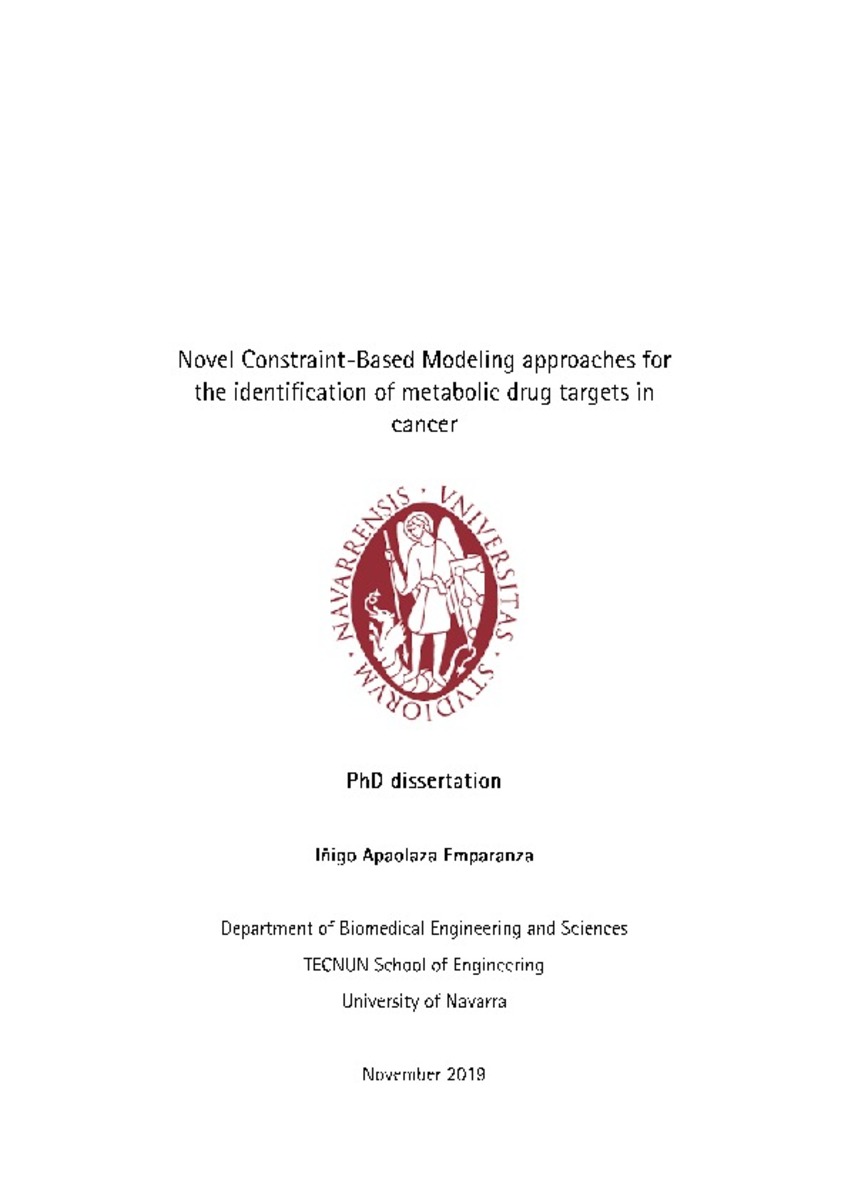Novel Constrain-Based Modeling approaches for the identification of metabolic drug targets in cancer.
Keywords:
Systems Biology.
Systems Medicine.
Cancer.
Algorithms.
Drug Targets.
Linear Programming.
Duality Theory.
Defense Date:
22-Nov-2019
Publisher:
Sevicio de Publicaciones. Universidad de Navarra
Citation:
APAOLAZA, Iñigo. "Novel Constrain-Based Modeling approaches for the identification of metabolic drug targets in cancer" Planes, F.J.,Tesis doctoral. Universidad de Navarra, Pamplona, 2019
Statistics and impact
0 citas en

0 citas en

Items in Dadun are protected by copyright, with all rights reserved, unless otherwise indicated.







